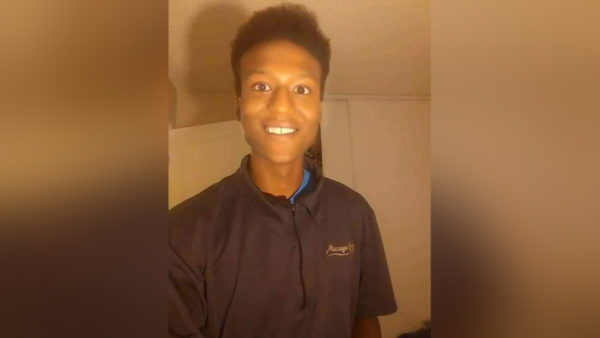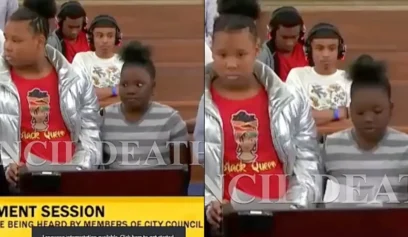A former police officer and use-of-force expert told a court last week that former Aurora, Colorado, officers Jason Rosenblatt and Randy Roedema did not properly handle Elijah McClain during his forcible detention in August 2019, which ultimately resulted in his death.
On Friday, Sept. 29, Dr. Marc Brown, who also instructs at the Federal Law Enforcement Training Center, reviewed the body camera footage from the incident. He testified to the jurors that both Roedema and Rosenblatt made several mistakes in how they treated McClain both before and after he was subjected to two carotid holds.

Moreover, Brown stated neither Roedema nor Rosenblatt adhered to the Aurora Police Department’s training, which mandates that officers must closely monitor suspects’ physical conditions.
“You think that failing to tell the paramedics that this man has been complaining over and over again he can’t breathe is consistent with the training?” a prosecutor with the Attorney General’s office, Jon Bungee, asked the witness, CPR reported.
Trending Today:
- ‘I’m Gonna Hunt You Down Like a Dog!’: Enraged White Motorist Ram’s Truck Into Black Man’s Car In Alleged Racist Attack
- Black Tesla Employee Claims White Co-Workers, Supervisor’s ‘Preferred Pronoun’ to Use Was the N-word
- ‘He’s Lucky to be Alive’: Video Shows Florida Cops Beating Black Man ‘Like a ‘Rag Doll.’
“It’s inconsistent because it says respiratory arrest or distress,” Brown replied. “Even a complaint of ‘I can’t breathe’ is supposed to be treated like a medical emergency.”
In 2021, five individuals, including the two officers, were charged in connection with McClain’s death. Both officers face charges of reckless manslaughter and second-degree assault. Additionally, a third officer and two paramedics have also been indicted and will face trial later this year.
On August 24, 2019, police were called after a teenager reported Elijah McClain as acting “suspicious” as he was walking home from a store while wearing a coat and mask.
WATCH THE BODY CAMERA FOOTAGE HERE.
Less than a minute after police arrived, they approached the young man, prompting an altercation between McClain, Roedema, Rosenblatt, and a third officer. The 23-year-old was placed in a carotid hold, potentially restricting oxygen to his brain.
Defense attorneys for Roedema and Rosenblatt said the former officers responded the way that they did because no supervising officers corrected them, and McClain said something to them that they took as a threat. He said, “I am taking my power back.”
Brown said what the young man said did not add up to allegations of him demonstrating “violent” resistance, which is what they used to put him into a chokehold.
“When they walked him over to the wall, he didn’t offer any violent resistance, didn’t make any threats,” Brown said. “When he was contacted by the officers, he didn’t turn to square up, he didn’t drop his items, he didn’t swing the bag that he had that had three iced teas in it. He didn’t attempt to strike them with the cellphone or anything else. He just told them he wanted to go home and that he was walking home.”
According to Aurora Police policy, officers are permitted to use a reasonable level of force when facing “violent resistance.”
During cross-examination, Brown acknowledged that if McClain had indeed attempted to grab an officer’s gun, as the defense claims, the officers would have been justified in using a greater degree of force than they actually employed.
The alleged excessive force from the officers was not the only thing that contributed to the violinist’s death. Paramedics arrived after the police.
Independent investigators reviewing the events leading to McClain’s death say the officers never told the medical emergency workers that the young man had complained about breathing.
“My perception, they were talking [to the paramedics] about his [McClain’s] quote-unquote superhuman strength — that he almost did a push-up with three of them on his back,” Brown said, according to 9 News, as he described the way the officers were pressing on his body, including Roedema kneeing McClain in the rib.
“During this point in the restraint period, based on my opinion, it looks like they’re hurting him at this point — keep in mind he’s handcuffed on the ground,” the witness said.
What also did not help is that the paramedics administered the sedative without assessing McClain’s condition. McClain received 500 milligrams of ketamine, a dosage greatly overestimated due to his size, leading to his premature death.


